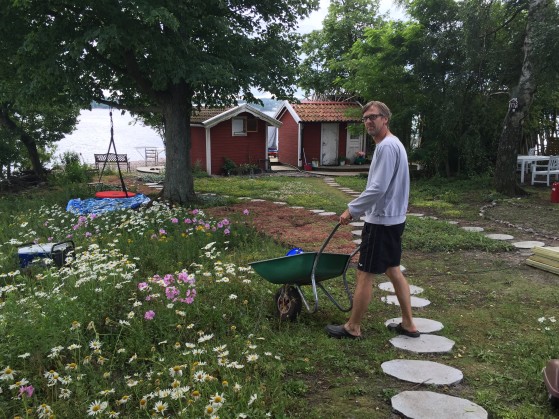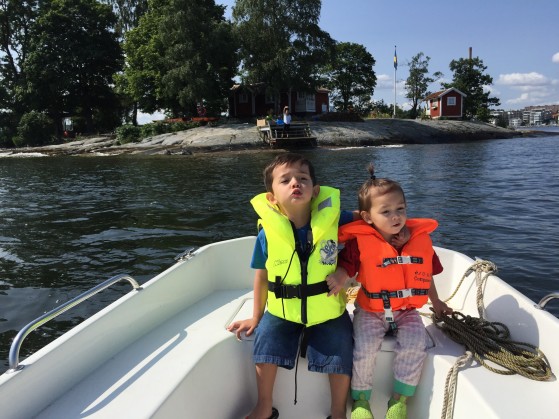Svanholmen Island, Sweden.

Why do people with “normal jobs” read books when they are on vacation?
Because they want to get a break! Because they want to clear their minds and get away from the day-to-day grind of work.
So what should an author do on his vacation?
Answer: Work.
At least that is what I will argue in this post.
I have spent the last few weeks doing a lot of manual labour: planting, gardening, rowing, etc.
I do not have to do these things.
Some people have a hard time understanding (the very Swedish) hobby of spending your vacation time working on your vacation house. But for me, it’s a no-brainer: I will have no brain left if I didn’t do this. 🙂
Doing manual labour works totally different parts of my brain than those I am normally using.
There are some who think that the only way to become an expert at something is to do it day-and-night. To eat it, sleep it, and never take a break from it.
I belong to another school of thought.
I look at my working-year more like teachers do: two intense periods (semesters) of work, and then longer periods of breaks.
Both my parents were teachers and I grew up seeing the dedication they put into their “teaching semesters”, and the need they had for those long summer vacations. Funny enough, the Swedish word for “vacation” is “semester”.
So from September to November, and February to June, I have my “speaking months” where I travel, speak, do interviews, read, learn and get inspired. But in the summers, I try to get away from all of that for weeks and weeks.
True, having long stints of “off-time” makes me less productive than if I would be working all the time. In my 20 years as an author I have published just 9 books. But it gives me sanity.
Being an author and a speaker is perhaps the best job in the world if you want to keep an active brain – you are basically paid to think about things that interest you!
But it can easily become addictive: you want to keep thinking of things to write or speak about all the time.
Just like you need to train different muscle groups to get a healthy, all-around, fit body, you also need to “exercise” different parts of your brain, and that includes those parts of your brain which have nothing to do with what you speak about.
In my case, that would be gardening. I normally talk about having a global mindset, about innovation and creativity and things like that. Gardening keeps me grounded, focused on the very local and on just doing what needs to be done.
Lesson: Do your brain a favour and give it something to think about that has nothing to do with what it normally thinks about. It will thank you by making you feel much happier and fulfilled. And you will actually come up with better ideas when you go back into “work mode”.
Almost anyone who has had a proper vacation knows that this is true – but an alarming number of professionals that I work with seem to have forgotten this truth and instead, spend way too much time working.

